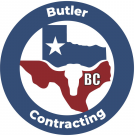In any given area, chances are there are several fence companies to choose from. How do you know which one is the right choice for you? We have a list of 4 tips that will help you narrow down your selection and give you the best chance at finding the most qualified professionals for the job.
1. Is your contractor insured?
Everyone makes mistakes and that includes skilled and qualified contractors. However, an uninsured mistake is a mess you don’t want and an unnecessary one at that. When you’re asking contractors for bids, make sure that your list of questions includes “Do you have a current and valid liability insurance policy?” – if they tell you that they’re insured, get the name of their insurance company so that you can call them and confirm that their policy is active and covers the service that you’re looking to hire them for.
Some contractors are not so forthright and will get an insurance policy just to receive an official document to show their clients, only to cancel the policy and perform services no longer covered. It’s best to do your due diligence and make sure that their policy is active so that in the event that something unfortunate takes place, like property damage during a project. It will be clear who is going to cover the costs. It’s never safe to assume that a contractor is covered or that they’re being honest.
2. Will your contractor call 811?
Fence installation requires digging post holes and there is a lot more going on beneath the surface than you might realize. That’s why it’s a state and federal law that a contractor must call 811 before they dig. 811 is a hotline used to schedule a utility company to come out to your property and mark any line associated with public utilities, such as electrical lines, telephone lines, internet cables, and even gas lines as well as any other utility underground lines. These lines will be marked with either spray paint or small flags.
Other than helping a post-hole digger avoid damaging utility lines, the importance of calling 811 is that it will clarify who is responsible should damage to the line occur. If everything is marked by a utility company and a construction crew digs and hits a line that was marked, the contractor is responsible for the damages. However, if a line that was NOT marked is damaged, the utility company will take responsibility for the damage.
3. Does your contractor have an online presence?
A contracting company might not need to have the most stylish social media content to be good at building fences, but a website and documentation that shows a history of work experience are good indicators of professionalism and a well-run business. Companies that can show their history is important because some businesses accrue a bevy of bad reviews and start over with a new name or reset their online profiles to get away from the poor name or bad reviews that they’ve built for themselves. However, sometimes new businesses need time to complete jobs and get reviews, so keep in mind that if you’re considering hiring a new company, those things might not be available yet. Good reviews, bad reviews, or no reviews are all indicators of something, so take a few minutes to check out what other people’s experiences have been.
Better Business Bureau is always a good resource to see if a company is reputable. A lesser-known resource is your local Chamber of Commerce – give them a call and see who they recommend in your local area. They are generally going to be more in tune with who a good contractor will be in the local area.
4. Does your contractor have an office?
Everybody starts somewhere, even Butler Contracting began with Alan working out of his truck, but it should be the aim of every good contractor to have an office, warehouse, storefront, or some public place of business. There are a lot of moving parts to a business and an office indicates that there is a level of organization that is paramount in executing tasks accurately and in a timely manner.
Contractors without offices are more likely to source their materials from big box hardware stores that could be used for any DIY project. Professionals in the industry work directly with suppliers to ensure that they’re using the best materials for the job. If your contractor doesn’t have a place of business, they’re not likely to have a place to stock and store materials either.
Another very important aspect of having a storefront is accountability. If they have a place that is open to the public every day, they’re not likely to dodge you and run away from a job gone bad. Having an office signifies that they are an invested member of the community who wants to stay in business by doing good business.
Consider Butler Contracting!
Of course, we wouldn’t give you a tip if we didn’t believe we lived up to it! Consider Butler Contracting for your fencing project – you can check out our online presence on Facebook where you can also read reviews and we have an office at 123 Longhorn St, Bastrop, TX 78602 where you can come say hello!



